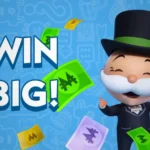Facebook, a name synonymous with social media, has redefined how people connect, communicate, and share content in the digital age. Launched in 2004 by Mark Zuckerberg and his college roommates, Facebook started as a platform to connect Harvard students but quickly expanded to other universities and eventually to the world. Today, it boasts over 2.8 billion monthly active users, making it one of the largest social networking sites globally. But Facebook’s journey from a college networking site to a global communication powerhouse has been marked by both remarkable achievements and significant controversies.
In this article, we explore Facebook’s history, its impact on society, its business model, and the challenges it faces as it continues to grow.
The Origins of Facebook
Facebook began as “TheFacebook” in a Harvard University dorm room in February 2004. Its initial goal was simple: to connect Harvard students in an online community. Within months, it spread to other Ivy League universities and eventually to universities across the U.S. By 2006, Facebook opened its doors to anyone over the age of 13 with a valid email address, which marked the beginning of its explosive global growth.
One of the key elements that set Facebook apart in its early days was its focus on real-world identity. Unlike other social platforms of the time, such as MySpace, Facebook encouraged users to create profiles using their real names and personal information. This focus on authenticity helped foster genuine connections and facilitated more personal interaction.
The Growth of a Giant
By the late 2000s, Facebook had become a dominant force in social media, surpassing competitors like MySpace. The platform’s growth was fueled by several key innovations. Facebook introduced features like the News Feed in 2006, allowing users to stay updated on their friends’ activities in a centralized manner. This feature was revolutionary for its time, as it turned Facebook into a hub for real-time updates.
The platform also made strides in user engagement by launching tools such as “Likes,” photo albums, and messaging, which increased the platform’s appeal. Facebook’s user base continued to grow, and by 2012, it reached a major milestone: one billion active users.
Facebook’s Business Model
From the outset, Facebook’s primary revenue model has been advertising. However, its approach to advertising is what has made it extraordinarily successful. Facebook collects vast amounts of data from its users, including personal details, interests, location, and browsing behavior. This data allows advertisers to target their ads with incredible precision, ensuring that their messages reach the most relevant audiences.
Facebook’s advertising tools have allowed businesses of all sizes, from small local shops to global corporations, to create highly targeted ad campaigns. Over the years, Facebook has refined its advertising platform, making it more sophisticated and effective. Today, Facebook offers a wide range of ad formats, including image and video ads, carousel ads, and sponsored content. Its ability to integrate ads seamlessly into users’ feeds has made advertising on Facebook incredibly profitable.
In addition to advertising, Facebook has expanded its business by acquiring several other companies. In 2012, Facebook purchased Instagram for $1 billion, a move that proved to be one of its most successful acquisitions. Instagram, which started as a photo-sharing app, has since grown into a platform with over one billion users, contributing significantly to Facebook’s overall revenue.
Another major acquisition came in 2014 when Facebook purchased WhatsApp for $19 billion. WhatsApp, a messaging service with over two billion users, has become another crucial part of Facebook’s ecosystem, though it currently generates minimal revenue.
Facebook has also made inroads into virtual reality (VR) with its acquisition of Oculus in 2014, reflecting the company’s long-term ambitions in this space. Through its efforts with Oculus, Facebook aims to build the future of communication beyond traditional social media platforms.
Social and Cultural Impact
The influence of Facebook on modern society is hard to overstate. It has transformed the way people communicate, share information, and even organize social movements. However, Facebook’s impact has not been uniformly positive. While it has connected billions of people across the globe, it has also raised concerns about privacy, misinformation, and the manipulation of public discourse.
- Personal Connections and Communication: Facebook has allowed people to stay connected with friends and family, regardless of physical distance. Its messaging services, groups, and events have enabled users to maintain relationships and build communities online. For many, Facebook is a daily source of personal updates, entertainment, and news.
- Misinformation and Fake News: While Facebook has enabled the free flow of information, it has also been criticized for allowing the spread of misinformation and fake news. The platform has been blamed for facilitating the spread of conspiracy theories, health misinformation, and misleading political content. This issue came to a head during the 2016 U.S. presidential election, when Facebook was accused of playing a role in the spread of disinformation campaigns designed to manipulate voters.
- Impact on Mental Health: Studies have shown that excessive use of Facebook can have negative effects on mental health. The platform’s emphasis on curated content – where users often share the highlights of their lives – can lead to feelings of inadequacy and depression among users who compare themselves to others. Additionally, Facebook’s addictive design, which encourages users to spend more time on the platform, has been linked to anxiety and decreased well-being.
- The Role of Facebook in Social Movements: Despite its drawbacks, Facebook has played a pivotal role in organizing social movements. From the Arab Spring to Black Lives Matter, activists have used Facebook to organize protests, spread awareness, and mobilize support. Its role in facilitating these movements has highlighted both the potential of social media as a tool for positive change and the complexities of regulating online spaces.
Privacy Concerns and Scandals
One of the most significant challenges Facebook has faced over the years is the issue of user privacy. Given the vast amounts of data Facebook collects, concerns have frequently arisen about how this information is used, stored, and shared.
The most prominent scandal involving Facebook’s handling of data came to light in 2018 with the Cambridge Analytica affair. In this case, it was revealed that the political consulting firm Cambridge Analytica had harvested the data of millions of Facebook users without their consent to influence political campaigns, including the 2016 U.S. presidential election and the UK’s Brexit referendum. The scandal caused a massive public outcry, leading to investigations by government bodies and a significant drop in Facebook’s stock price.
In the wake of the Cambridge Analytica scandal, Facebook implemented several changes to its privacy policies, including giving users more control over their data and tightening the rules for developers accessing Facebook’s platform. However, many critics argue that these changes have not gone far enough and that Facebook continues to prioritize growth and revenue over user privacy.
Regulation and Legal Challenges
As Facebook has grown, so too have calls for greater regulation of the platform. Governments around the world have raised concerns about Facebook’s dominance in the digital advertising market, its role in the spread of harmful content, and its handling of user data.
In the U.S., Facebook has faced multiple antitrust investigations, with lawmakers arguing that the company’s acquisitions of Instagram and WhatsApp have stifled competition. In 2020, the Federal Trade Commission (FTC) and a coalition of states filed an antitrust lawsuit against Facebook, seeking to unwind these acquisitions. The outcome of these cases could have significant implications for the future of the company.
Similarly, the European Union has been particularly active in regulating Facebook. The EU’s General Data Protection Regulation (GDPR), implemented in 2018, has set strict rules for how companies handle personal data, and Facebook has faced significant fines for non-compliance. Moreover, the European Commission has proposed new regulations to address the spread of harmful content and disinformation on social media platforms, with Facebook in the crosshairs.
Facebook’s Future: Challenges and Opportunities
As Facebook enters its third decade, it faces several challenges that could shape its future.
- Regulation and Legal Issues: Facebook will need to navigate an increasingly complex regulatory environment as governments worldwide push for more stringent rules governing online platforms. How Facebook responds to these challenges will be critical to its long-term success.
- Competition: While Facebook remains dominant, it faces growing competition from newer social media platforms like TikTok. These platforms appeal to younger users, who are increasingly migrating away from Facebook in favor of more visually-driven and short-form content. Facebook’s ability to adapt to changing user preferences will be crucial.
- Metaverse and VR Ambitions: Facebook’s investment in virtual reality through Oculus reflects its ambition to build a new kind of social platform. CEO Mark Zuckerberg has spoken at length about his vision for the “metaverse,” a virtual world where people can work, play, and socialize. Whether this vision becomes a reality remains to be seen, but it represents a potential new frontier for Facebook.
- Trust and Privacy: Rebuilding trust with users, especially regarding data privacy, will be a significant challenge. The company will need to show that it takes user privacy seriously and that it can balance its business interests with protecting its users’ information.
Conclusion
Facebook’s journey from a Harvard dorm room to a global social media giant is a testament to its innovation and adaptability. However, as it continues to grow, the company faces increasing scrutiny over its impact on society, user privacy, and competition. How Facebook navigates these challenges will determine its future role in the digital landscape, whether as a dominant social media platform or as a company at a crossroads. One thing is certain: Facebook has profoundly reshaped the way we interact with each other and the world around us, and its influence is unlikely to fade any time soon.










